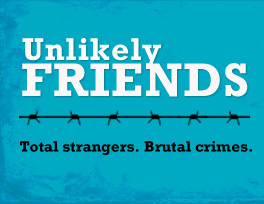I was schooled in criminal justice reform by a former bank robber.
Nelson had his sentence commuted by the Governor of Louisiana a couple of years prior to us sitting in a van outside the prison he had been housed for 12 years, Dixon Correctional Institute. I was working on my first documentary “Road to Return” in which Nelson was featured as an ex-con returning to society. We were parked out on Hwy 68, waiting to get a wide establishing shot of the guards taking the prisoners out on work detail to hoe and pick cotton on the prison farm. Suddenly a half dozen guards rode up kicking up a cloud of dust as they brought their horses to an abrupt halt, long southern vowels rolling like fat bulbous marbles out their mouths, “ya’ll better get on outta here.” Producer ready I stood firm and proper, clip board in hand, informing them we were on public property standing on the highway ACROSS from the prison and were therefore legally allowed to film. They just laughed and repeated for us to get the hell out of there making sure I noted their hands pointedly poised across the trigger guards of their guns. Nelson grabbed my elbow, pulling me into the van, “You gotta lot to learn about the criminal justice system, girl.”
That was my first lesson; the criminal justice system doesn’t want the public to know what is going on and those standing on the right side of the law often do the wrong thing, usually at a cost to us all. Laws are here to serve and protect all of society. But the weakness of human nature often leads many who enforce those laws to bend to the blind temptation of oppression and abuse their power. If those of us in the free world stand by and continue to let wrongs stand, the freedom of us all is ultimately at risk. I learned many, many lessons after that hot summer day down in Jackson, Louisiana and continue to as I add more films on reform to my catalog of work.
“The only thing necessary for the triumph of evil is for good men to do nothing.”
― Edmund Burke



